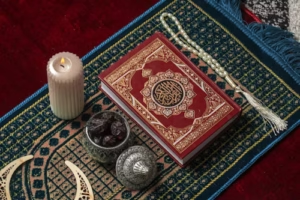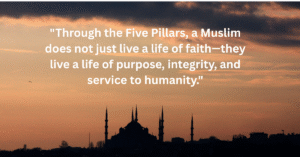The Five Pillars of Islam
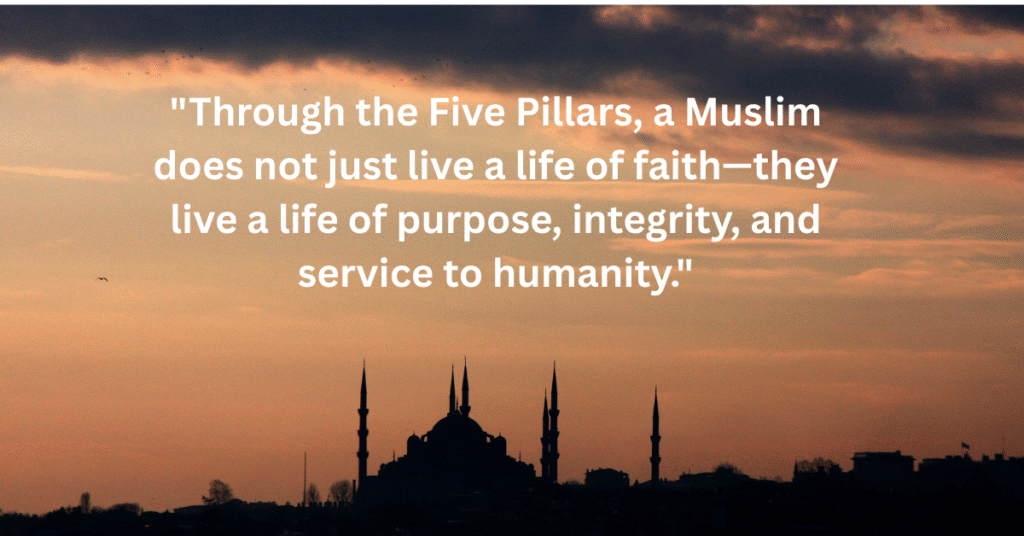
The Five Pillars of Islam: Foundation of Muslim Life
The Five Pillars of Islam are the cornerstone of a Muslim’s faith and practices. They provide a clear structure for leading a life that aligns with the teachings of Islam. These five fundamental acts—Shahada (faith), Salat (prayer), Zakat (charity), Sawm (fasting), and Hajj (pilgrimage)—are considered the foundation of a Muslim’s religious life and spiritual connection with God (Allah). They guide Muslims in fulfilling their religious duties and help cultivate a sense of community, humility, and devotion. In this article, we will explore each pillar in depth, examining its spiritual significance, historical context, and its relevance in the modern world.
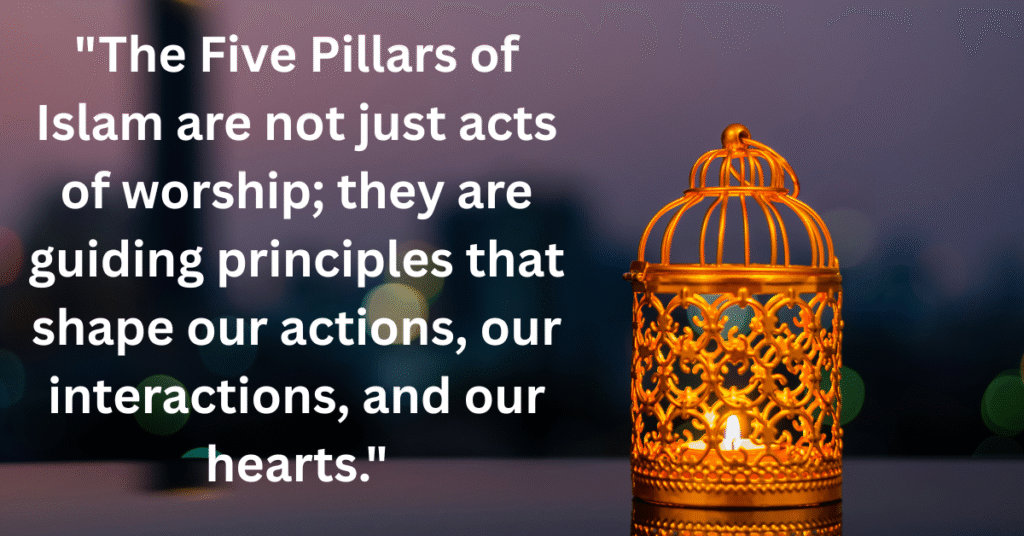
1. Shahada (Faith) – The Declaration of Faith
The first pillar, Shahada, is the declaration of faith. It is the core principle upon which the entire structure of Islam is built. The Shahada is simple yet profound: “There is no god but Allah, and Muhammad is His Messenger.” This statement affirms the monotheistic nature of Islam and the acceptance of Prophet Muhammad as the final messenger.
Spiritual Significance: The Shahada symbolizes a Muslim’s unwavering belief in the oneness of Allah and the prophethood of Muhammad. It is recited during moments of joy and sorrow, marking the beginning of a Muslim’s life as well as the end. For Muslims, it is a daily reminder of their faith and a reaffirmation of their purpose in life—to worship Allah alone and follow the teachings of His final messenger.
Historical Context: The Shahada was declared by Prophet Muhammad in Mecca, urging the people to abandon idol worship and embrace monotheism. It remains the first thing whispered into the ears of a newborn and the last words spoken to a dying person, signifying its central role in a Muslim’s life.
Practical Application: In today’s world, the Shahada serves as a powerful reminder for Muslims to stay true to their faith. It is recited during every prayer, during significant milestones, and throughout daily life to keep the soul focused on the worship of Allah.
2. Salat (Prayer) – The Act of Worship
Salat, the second pillar, refers to the five daily prayers that form the foundation of a Muslim’s worship routine. These prayers are performed at specific times throughout the day: Fajr (dawn), Dhuhr (midday), Asr (afternoon), Maghrib (sunset), and Isha (night).
Spiritual Significance: Salat is a direct line of communication between the worshipper and Allah. It allows Muslims to submit to Allah, seek forgiveness, and express gratitude. Each prayer involves specific physical movements—standing, bowing, and prostrating—which represent humility before Allah.
Historical Context: Salat was ordained during the Night Journey (Isra and Mi’raj) when Prophet Muhammad ascended to the heavens. It was initially prescribed as fifty daily prayers but was reduced to five after Prophet Muhammad’s intercession with Allah.
Practical Application: In the modern world, Salat offers Muslims a structured routine that helps them maintain a strong connection with Allah. Despite the challenges of modern life, such as work and school, Salat serves as a moment to pause, refocus, and engage in worship.
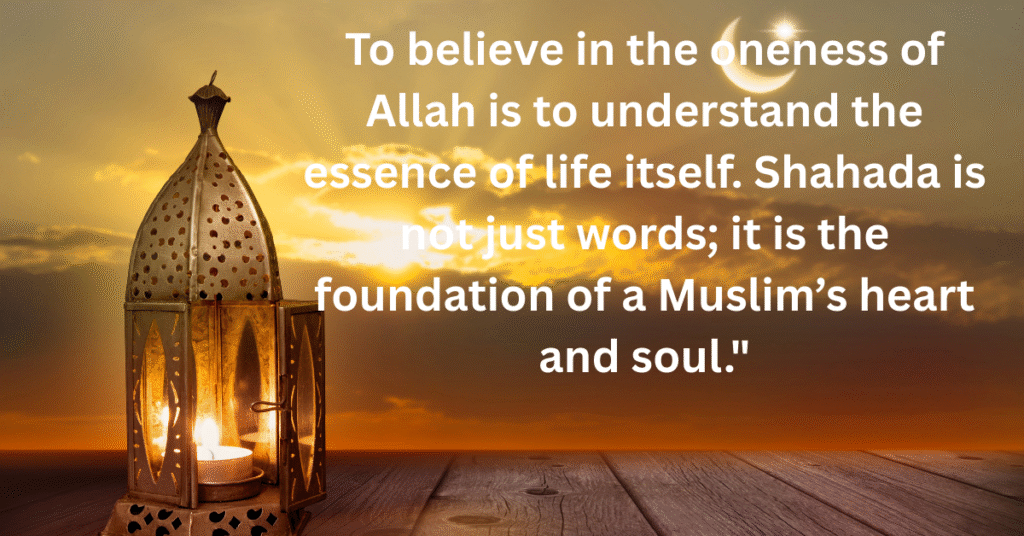
3. Zakat (Charity) – The Act of Giving
Zakat is the third pillar and represents charity, a vital part of Islam’s emphasis on social justice and community welfare. It requires Muslims to give a portion of their wealth—usually 2.5% of their savings and investments—to those in need.
Spiritual Significance: Zakat purifies a Muslim’s wealth by redistributing resources to those less fortunate. It is seen not just as an act of charity but as a means to purify one’s soul, reduce greed, and foster empathy towards others. Through Zakat, Muslims are reminded that their wealth is a trust from Allah, and they must use it in ways that benefit society.
Historical Context: Zakat was institutionalized by the Prophet Muhammad to support the welfare of the community, particularly those who were marginalized—orphans, widows, and the poor. It became a mandatory practice, ensuring that wealth was distributed more equitably.
Practical Application: In today’s context, Zakat continues to play a critical role in alleviating poverty and supporting charitable causes. It can be given to individuals, organizations, or directly to those in need. Many Muslims also contribute to Zakat through online platforms and charitable foundations to ensure that the distribution is efficient and transparent.
4. Sawm (Fasting) – The Discipline of Fasting
Sawm refers to fasting during the Islamic holy month of Ramadan. Muslims abstain from eating, drinking, and other physical needs from dawn until sunset during this month.
Spiritual Significance: Fasting is a way for Muslims to purify their bodies and souls. It teaches self-discipline, control over desires, and empathy for the less fortunate. Fasting is not only a physical act but a spiritual journey that deepens the sense of gratitude and dependence on Allah.
Historical Context: Ramadan was the month in which the Quran was revealed to Prophet Muhammad, making it a time of intense spiritual reflection. The command to fast was given to the Muslim community as a means to strengthen their faith and connection to Allah.
Practical Application: Fasting during Ramadan serves as a reminder of the importance of spiritual and physical purification. In the modern world, while fasting remains an important practice, the challenges of maintaining it in a fast-paced society are significant. However, the collective experience of fasting during Ramadan builds a sense of unity and strengthens community ties.
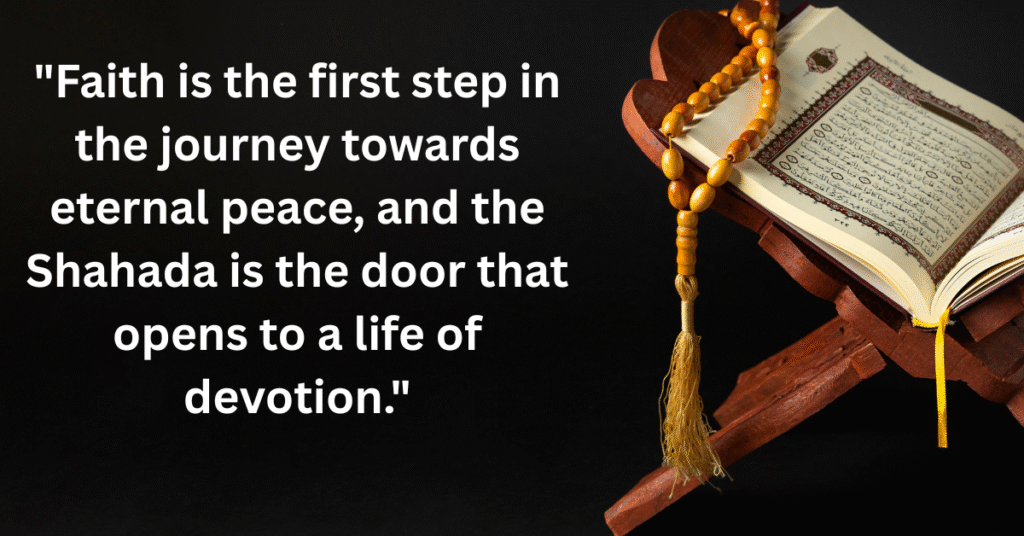
5. Hajj (Pilgrimage) – The Spiritual Journey
Hajj, the fifth pillar, is the pilgrimage to Mecca that every Muslim must undertake at least once in their lifetime, provided they have the physical and financial means to do so.
Spiritual Significance: Hajj is one of the most profound spiritual experiences a Muslim can have. It allows Muslims to stand in the presence of Allah and seek forgiveness for their sins. The pilgrimage serves as a reminder of the Day of Judgment, where all people, regardless of race or status, stand equally before Allah.
Historical Context: Hajj has its origins with Prophet Ibrahim (Abraham), who, along with his son Isma’il (Ishmael), built the Kaaba in Mecca, the holiest site in Islam. The rituals performed during Hajj are deeply connected to the actions of the Prophets and are intended to bring Muslims closer to Allah.
Practical Application: In the contemporary world, Hajj remains a significant spiritual and cultural event. Despite the modern conveniences, such as transportation and accommodations, the experience of performing Hajj continues to be one of deep personal reflection and religious fulfillment.
Conclusion: The Timeless Relevance of the Five Pillars
The Five Pillars of Islam form the foundation of a Muslim’s life. They provide a structured path for spiritual development, social responsibility, and personal discipline. In the modern world, where materialism often takes precedence, the Five Pillars serve as a timeless reminder of the importance of faith, charity, and self-discipline.
As Muslims continue to navigate the complexities of modern life, these pillars remain steadfast, guiding them toward a life of spiritual fulfillment, compassion, and service to humanity. The Five Pillars are not merely practices—they are the essence of Islam, bringing individuals closer to Allah while creating a cohesive and compassionate community.
FAQs
1. What are the Five Pillars of Islam?
The Five Pillars of Islam are the core practices that every Muslim is expected to follow. They are:
- Shahada (Faith) – The declaration of belief in the oneness of Allah and the prophethood of Muhammad.
- Salat (Prayer) – The five daily prayers that Muslims perform.
- Zakat (Charity) – The obligatory charity that Muslims give to support the less fortunate.
- Sawm (Fasting) – The act of fasting during the Islamic month of Ramadan from dawn to sunset.
- Hajj (Pilgrimage) – The pilgrimage to Mecca that every Muslim must undertake at least once in their lifetime, provided they are financially and physically able.
2. Why are the Five Pillars of Islam important?
The Five Pillars serve as the foundation for a Muslim’s faith and practices. They help Muslims maintain a close relationship with Allah, foster community spirit, purify their souls, and contribute to the welfare of society.
3. What is the Shahada and what does it mean?
The Shahada is the first pillar of Islam and is the declaration of faith. It is recited as: “There is no god but Allah, and Muhammad is His Messenger.” This statement affirms the monotheistic belief in Allah and acknowledges Prophet Muhammad as the final messenger of God.
4. How many times a day do Muslims pray?
Muslims are required to perform five daily prayers, which are:
- Fajr (pre-dawn)
- Dhuhr (midday)
- Asr (afternoon)
- Maghrib (sunset)
- Isha (night)
These prayers help maintain a constant connection with Allah throughout the day.
5. What is Zakat, and who is eligible to receive it?
Zakat is the mandatory charity given by Muslims, amounting to 2.5% of their accumulated wealth, and is given to the needy. Eligible recipients include the poor, orphans, widows, travelers in need, and people suffering from hardship. Zakat serves to purify a Muslim’s wealth and promote social equality.
6. Why do Muslims fast during Ramadan?
Fasting during the month of Ramadan (Sawm) is a way to develop self-discipline, spiritual growth, and empathy for those who are less fortunate. Muslims abstain from food, drink, and other physical needs from dawn to sunset as an act of worship to Allah.
7. What are the benefits of fasting in Islam?
Fasting in Islam helps Muslims to strengthen their connection with Allah, purify their hearts, and cleanse their souls. It promotes self-control, encourages gratitude for blessings, and cultivates empathy for the poor and hungry.
8. What is Hajj, and when is it performed?
Hajj is the fifth pillar of Islam, a pilgrimage to Mecca that every Muslim must perform at least once in their lifetime, provided they are physically and financially able. It takes place during the Islamic month of Dhul-Hijjah and involves specific rituals, including praying at the Kaaba, a symbolic stone structure in Mecca.
9. Do I have to perform all five pillars of Islam?
Yes, Muslims are required to follow all five pillars of Islam as part of their faith and commitment to Allah. Each pillar serves a unique purpose and helps maintain the spiritual and ethical aspects of a Muslim’s life.
10. Can non-Muslims participate in the Five Pillars?
While non-Muslims cannot fully participate in the Five Pillars, they can learn from them. For instance, many non-Muslims choose to observe fasting during Ramadan or support charitable efforts like Zakat. However, the core practices like prayer and pilgrimage are specifically for Muslims.
11. How do the Five Pillars promote community?
The Five Pillars help create a strong sense of community among Muslims. Prayer brings Muslims together several times a day, Zakat fosters a spirit of charity and equality, fasting builds solidarity, and Hajj unites Muslims from around the world. These practices reinforce the collective nature of the Muslim faith.
12. Can I perform Hajj if I am financially unable?
No, Hajj is only obligatory for those who are financially and physically able to perform it. If a Muslim is not able to afford the pilgrimage, they are not required to undertake it. However, many Muslims strive to save money to fulfill this important religious duty when they are able.
13. How do Muslims calculate Zakat?
Zakat is calculated by giving 2.5% of one’s accumulated wealth, such as savings, investments, and assets, after meeting basic living expenses and debts. It is typically given annually, and the funds are distributed to those in need.
14. Is there a specific time for performing the Five Pillars?
Some pillars, like the prayers and fasting, occur at specific times during the day or during the month of Ramadan. Others, like Hajj, are performed during specific months of the year. Zakat is given annually, and the Shahada is recited at any time to reaffirm one’s faith.
15. How can the Five Pillars of Islam impact modern life?
The Five Pillars provide a comprehensive framework for leading a balanced, ethical, and spiritually fulfilling life. In today’s world, they help Muslims stay grounded in their faith, manage their time effectively, foster a sense of social responsibility, and maintain a relationship with Allah amidst the pressures of modern life.


